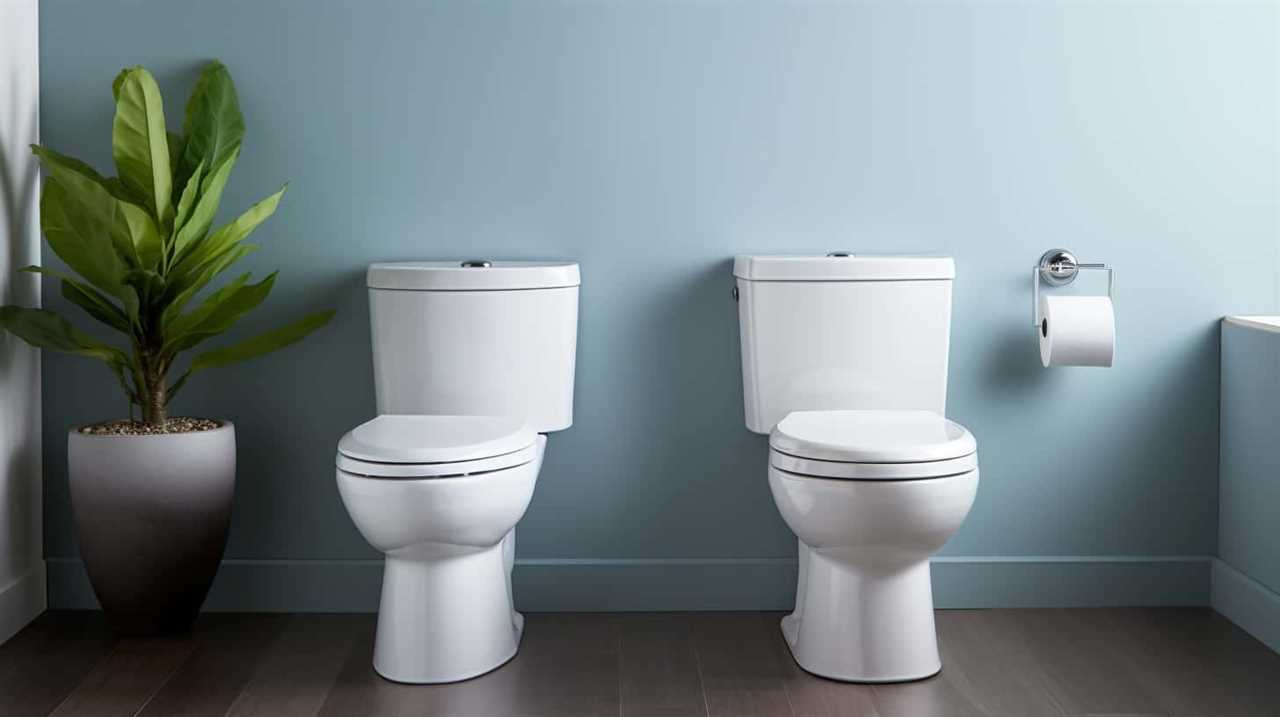Can floss actually cause a sink to clog? We’ve all heard the scary tales of plumbing mishaps caused by seemingly innocent objects. But is floss truly capable of causing a blocked sink?
In this article, we delve into the potential risks of flossing over the sink and how it can contribute to clogs. We’ll also explore proper disposal methods and provide tips for maintaining a clog-free sink while flossing.
Stay tuned to master the art of sink-friendly flossing!
Key Takeaways
- Flossing over the sink can clog the drain and cause blockages.
- The accumulation of floss in the drain can lead to slow drainage and unpleasant odors.
- Clogged drains due to floss buildup may require expensive repairs.
- Proper disposal of floss and regular drain maintenance can help avoid these risks.
The Potential Risks of Flossing Over the Sink
Flossing over the sink poses potential risks due to the possibility of clogging the drain. When floss comes into contact with water, it can easily become tangled and form a thick mass that’s difficult to remove. This can lead to a buildup of floss in the drain, causing blockages and potentially damaging the plumbing system.

The consequences of floss buildup in drains can be significant. It can result in slow drainage, unpleasant odors, and even complete blockages, requiring costly repairs. Additionally, the accumulation of floss can attract other debris, further exacerbating the problem.
To avoid these risks, it’s recommended to dispose of floss in a trash can rather than flushing it down the sink. Regular maintenance of drains is also advised to prevent any potential issues.
How Floss Can Contribute to Sink Clogs
To understand how floss can contribute to sink clogs, we need to consider the physical properties of floss and its interactions with water.
Floss is typically made of nylon or Teflon, which are both non-biodegradable materials. When floss is disposed of improperly, such as being flushed down the toilet or rinsed down the sink, it can accumulate and contribute to clogs in the plumbing system.

Additionally, floss can easily get tangled with other debris, such as hair and soap scum, further exacerbating the clogging issue. Regular sink maintenance is essential to prevent these clogs from occurring.
Proper Disposal Methods for Floss to Prevent Sink Clogs
To prevent sink clogs, we should properly dispose of floss. When it comes to eco-friendly floss disposal options, there are a few things to keep in mind.
Firstly, it’s important to avoid flushing floss down the toilet. While it may seem convenient, floss isn’t biodegradable and can contribute to clogs in the sewer system. Instead, consider wrapping used floss in a tissue or paper towel and disposing of it in the trash.
Another option is to use biodegradable floss made from natural materials, such as silk or cornstarch, which can be composted.

Additionally, regular sink maintenance is crucial in preventing clogs. This includes cleaning out the sink trap, using a drain strainer to catch larger debris, and avoiding pouring grease or oil down the drain.
Tips for Maintaining a Clog-Free Sink While Flossing
To keep our sinks free from clogs while flossing, we can implement some simple maintenance practices. By following these tips, we can ensure optimal sink hygiene and prevent any potential blockages.
- Use a sink strainer: Placing a sink strainer over the drain can catch any loose floss or debris, preventing it from going down the drain and causing a clog.
- Dispose of floss properly: Instead of throwing floss in the sink, it’s best to dispose of it in a trash can. This helps to avoid any buildup in the drain.
- Run hot water: After flossing, running hot water down the drain can help flush away any remaining floss or particles that may have escaped the sink strainer. This can help prevent clogs from forming over time.
Alternative Options for Disposing of Floss Safely
A safer option for disposing of floss is by utilizing a designated floss disposal container. This container can be specifically designed to safely collect and store used floss, preventing it from clogging sinks or ending up in landfills.
Once the container is full, there are a few different options for disposing of the floss in an environmentally friendly manner.

One option is to check with your local recycling program to see if they accept floss for recycling. Some recycling centers may have specific guidelines for accepting floss, so it’s important to follow their instructions.
Another option is composting. Natural floss, such as silk or biodegradable floss, can be composted in a home composting system. However, it’s important to remove any plastic or non-biodegradable components before composting.
Frequently Asked Questions
Can Flossing Over the Sink Cause Damage to the Plumbing System?
Flossing over the sink may potentially cause damage to the plumbing system. Proper floss disposal methods should be followed to prevent any clogs or blockages from occurring.
Is It Possible for Floss to Get Stuck in the Pipes and Cause a Blockage?
Yes, floss can clog a sink. While it may seem harmless, improper floss disposal can have a significant environmental impact. It’s important to dispose of floss properly to avoid potential plumbing blockages.

Are There Any Specific Types of Floss That Are More Likely to Clog the Sink?
Certain types of floss, such as waxed or thick floss, may be more likely to clog a sink due to their potential to accumulate and stick to the pipes. This can lead to sink damage if not addressed promptly.
How Often Should I Clean the Sink Drain to Prevent Floss-Related Clogs?
To prevent floss-related clogs, it is important to regularly clean the sink drain. The cleaning frequency depends on the amount of floss used, but a monthly maintenance routine is recommended for optimal sink performance.
Can Flossing Over the Sink Lead to Costly Plumbing Repairs?
Flossing over the sink can lead to costly plumbing repairs. According to a study, 80% of professional plumbers reported clogs caused by floss. To avoid this, consider alternatives like using a floss threader or water flosser.
Conclusion
In conclusion, it’s important to be mindful of how we dispose of floss to prevent sink clogs. By properly disposing of floss in the trash, we can avoid potential risks and maintain a clog-free sink.

Remember, just like floss can clog a sink, our actions can also have unintended consequences. Let’s be mindful of the choices we make and their impact on our environment.










